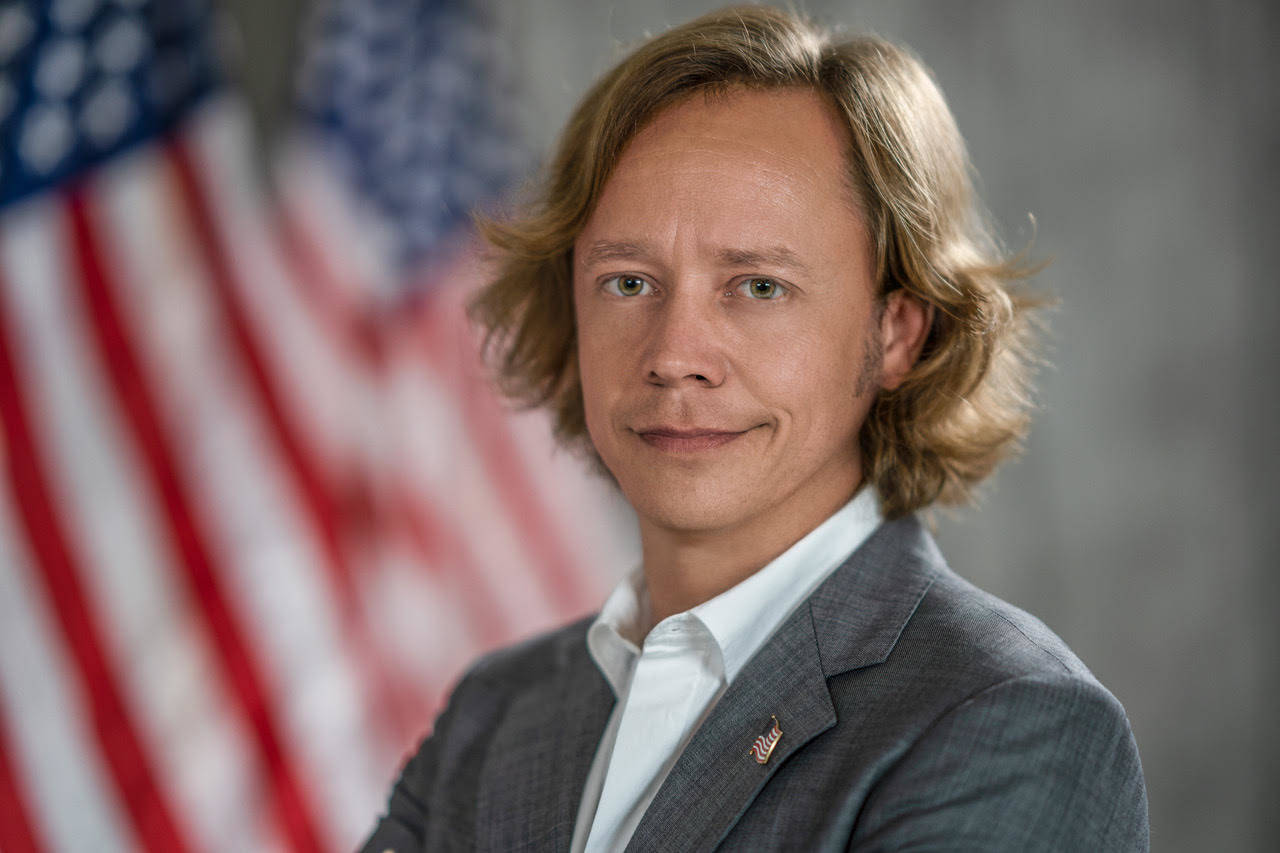Clarification: This article has been updated to further clarify that all allegations of sexual abuse against Brock Pierce have been willfully withdrawn and payments made by Pierce in associated litigation were default orders by the court.
A former child actor turned cryptocurrency investor is in Alaska this week for what even he admits is a long-shot campaign for the presidency.
Brock Pierce, who as a child appeared in two “Mighty Ducks” films and alongside comedian Sinbad in the movie, “First Kid,” before going on to become a technology investor, is running for president and Alaska is one of the 16 states where his name will appear on the state ballot as a petition candidate.
Pierce’s campaign is aimed at offering something different than either of America’s major political parties. What he offers appeals, he says, to all Americans. He made the majority of his money in the digital currency Bitcoin but has been an investor in the technology sector since the 1990s, and it’s in technology that Pierce sees a more equitable future.
“55 million Americans are unbanked,” he said in a recent interview with the Empire. “There are new mobile banking tools which are faster and more efficient. We need new regulations that allow for this, that say, ‘We see the good in this, and we’re regulating this.”
[Galvin: Young can’t deliver anymore]
Pierce is a promoter of what he calls conscious capitalism, which are business ventures geared toward generating societal good, and he sees the technology sector’s ability to provide services to those who previously couldn’t afford them as an example of that. He credited to the Wyoming State Legislature with creating an environment that is conducive to innovators, which he said were fleeing places like New York in search of regulatory certainty.
His plan revolves around incentives and creating the right incentives to get people to do things that generate social good as well as money.
“We need to be mindful of what you incentivize. We have to have choice, to have freedom,” he said. “The role of the government is to look at the macro level. Right now, I’m not sure we have a goal. Coming out of the Great Depression, America was able to get behind a unified vision. I’m not sure we have a destination, a vision for our collective values, we’ve been going in circles.”
And he admits he doesn’t have all the answers, “I’m not saying I have the vision, I have a vision.”
Pierce’s lofty vision of a future unified by conscious capitalism would seem to be undermined by his own history of dubious financial partnerships. After retiring from acting as a young man, Pierce was one of three co-founders of a digital entertainment company called Digital Entertainment Network.
According to a profile in the Los Angeles Times in 2000, DEN imploded due to mismanagement and high salaries for its executives, including Pierce. One of the company’s co-founders, Marc Collins-Rector, has been repeatedly accused of child molestation.
A 2001 article from the LA Times says DEN’s founders were ordered by a court to pay $4.5 million after ruling “DEN founders failed to respond to accusations of rape, assault and death threats by the three employees, including one who was allegedly abused at age 15.”
Pierce never faced criminal charges in the U.S. and all allegations against him were willfully recanted, according to a webpage from Pierce’s attorney’s dedicated to distancing him from the company. Payments made by Pierce were default payments ordered by the court, the website says.
One plaintiff, Michael Egan, would later recant other allegations he made against other prominent Hollywood figures and his lawyer made an apology in 2015, the Times said. The article does not mention the allegations against DEN’s executives. Collins-Rector pleaded guilty in 2004 to five counts of transporting minors across state lines for sex from 1993 to 1997, according to a 2004 USA Today article.
Despite being critical of companies that had outsourced labor to authoritarian countries like the People’s Republic of China in his interview with the Empire, Pierce once had his own business in that country. According to a 2016 Wired article, Pierce in 2001 founded Internet Gaming Entertainment which paid people in China to play the online video game “World of Warcraft” in order to obtain items in the game that would later be sold for real-world dollars.
That company was later be forced to restructure due to a failing business model and a class-action lawsuit from millions of the game’s players, according to a 2008 Wired article. One of the company’s investors who replaced Pierce as CEO was Steve Bannon, former strategist for President Donald Trump, who faces charges of money laundering in connection with a project to build a wall on the U.S.-Mexico border.
But Pierce remains optimistic his outsider approach can bring Americans together. Incentives are how to get things done, he said, but the current political system has more incentive to protect itself than to deliver for all Americans.
“We are measuring our success incorrectly,” he said. “What if we stopped measuring our success by the people at the top? What if we started measuring success by the people at the bottom? Incentives are the levers, we’ve created the wrong incentives.”
• Contact reporter Peter Segall at psegall@juneauempire.com. Follow him on Twitter at @SegallJnuEmpire.

